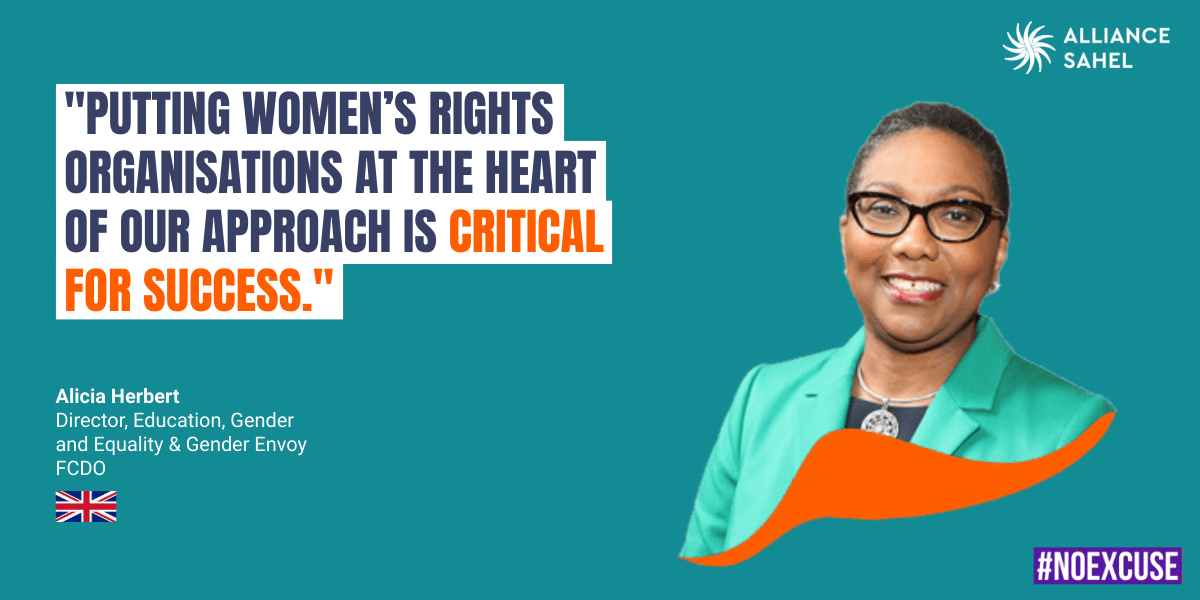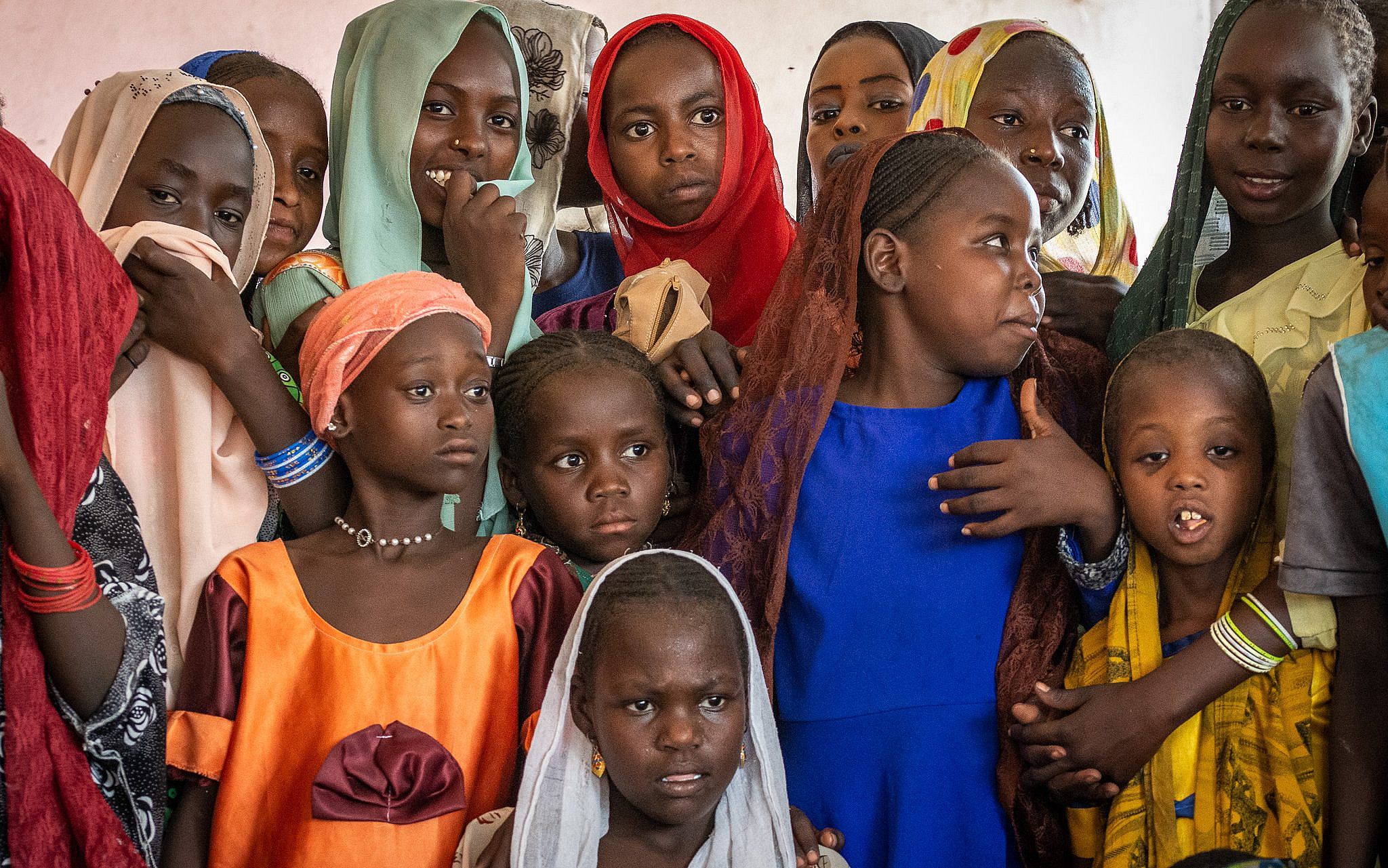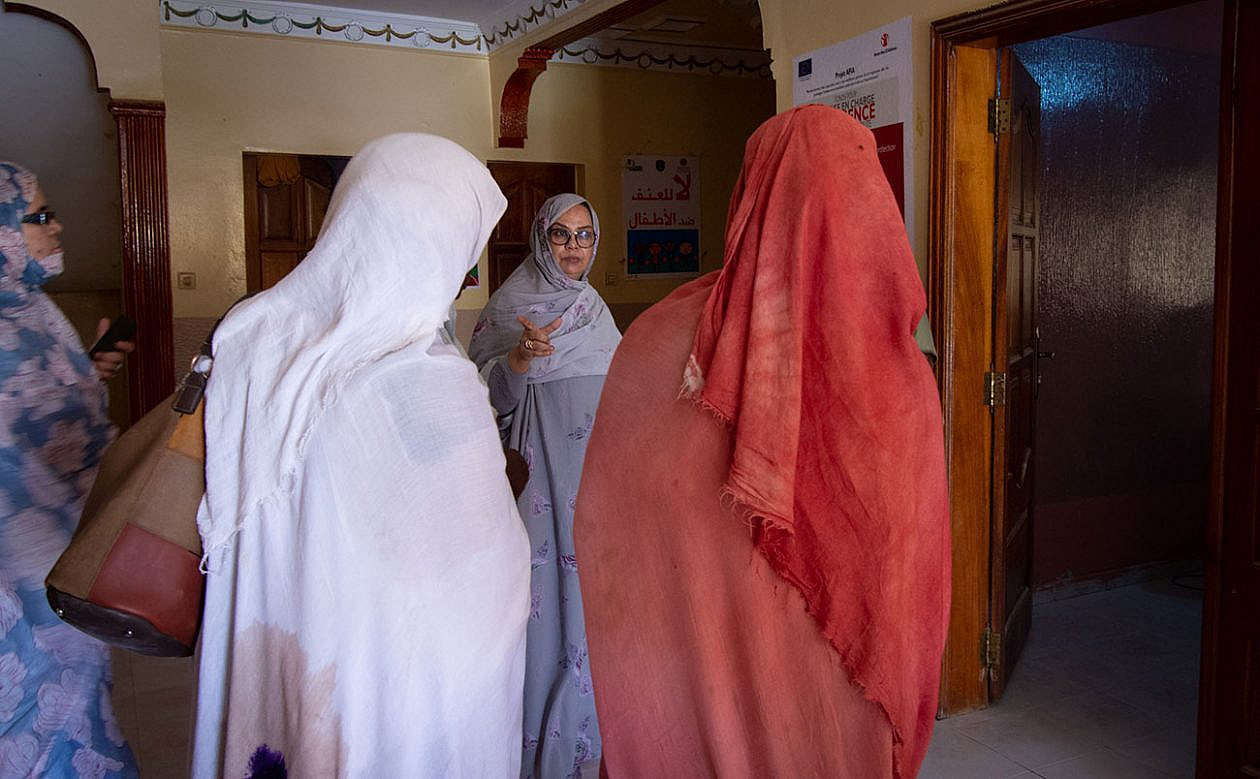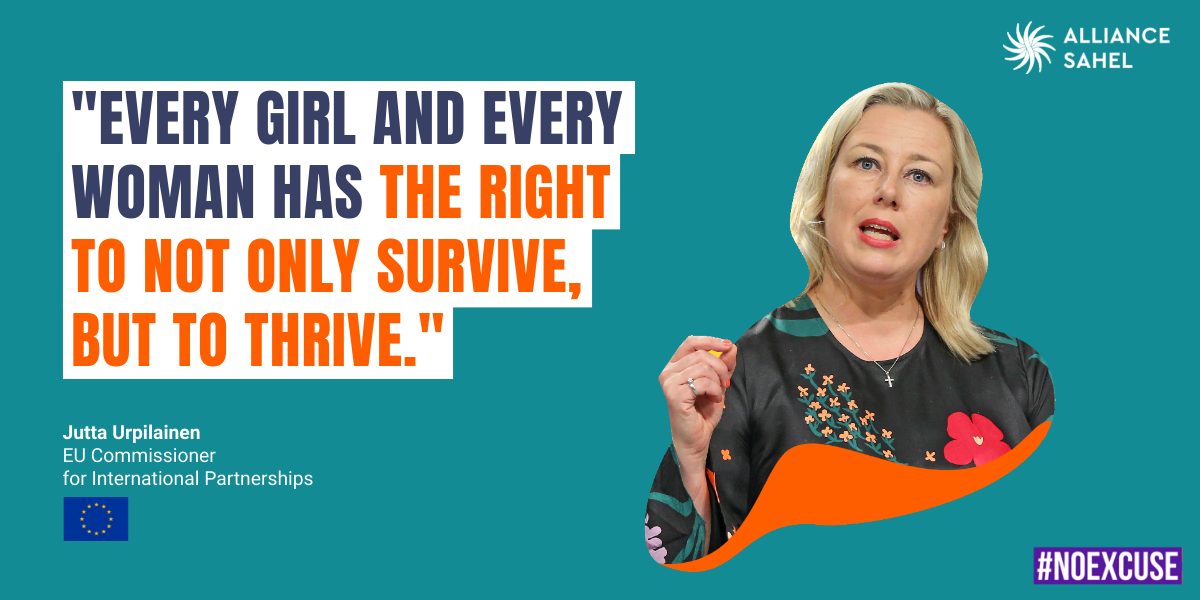Investing to Prevent GBV: the Sahel Alliance Takes a Firm Stand!
“Look at my feet, I wasn’t born this way. I was blamed for the death of a child. I denied in vain. They chased me, hurt me and amputated my toes… I couldn’t defend myself. I ended up in this centre… The courts have fined my persecutors. But I never received any payment and I was never allowed to rejoin my family.”
This is the poignant testimony of Antoinette, a resident of the Delwendé Centre for women accused of witchcraft in Burkina Faso.
Antoinette’s story is unfortunately not unusual. Sexual and gender-based violence (SGBV) disproportionately affects women and girls in all countries and in all societies, including in conflict situations, at home, at school, in the street, at work, on the internet and in refugee camps.

However, gender-based violence (GBV) is exploding in the Central Sahel region and Chad as the humanitarian situation deteriorates. Accurate and timely data provides essential information to inform the provision of support and assistance. The deteriorating security situation is leading to a massive population displacement.
Women and girls are particularly affected by security crises. The figures recently published by OCHA and Project 21 are compelling:
- protection incidents have increased by 20% between 2022 and 2023
- 1 in 9 protection incidents are related to GBV, reaching a ratio of 1 in 5 in some areas
In 2023, more than 40% of GBV victims did not have access to adequate health and/or social services.
GBV prevalence in the Sahel is eye-watering – exacerbated by widespread insecurity and displacement. One in two women in Mali, Niger, Chad and Burkina Faso does not feel safe (based on recent protection monitoring data). Ending GBV is a priority for the UK, and I am proud that we are partnering with women’s rights organisations in the Sahel to prevent and respond to GBV. Putting women’s rights organisations at the heart of our approach is critical for success. For these 16 days of activism against GBV, let’s celebrate their efforts. »
Alicia Herbert, Director, Education, Gender and Equality and Gender Envoy, FCDO

A Commitment Shared by Several Members of the Sahel Alliance
Violence against women is one of the most frequent violations of fundamental human rights in the world. It remains one of the main obstacles to development, to fulfilment – physical and emotional – and to the equal participation of women and girls in political, economic and social life.
The issue is structural, a consequence of the inequality between women and men in society, and in particular in how power is shared. This is why, as a feminist agency, AFD works alongside its partners to ensure that gender issues are factored into all its projects and finances feminist civil society organisations through the Support Fund for Feminist Organizations. They have the knowledge, experience and commitment needed to support lasting changes in mindsets and behaviour, for the benefit of society as a whole.» (translated from French)
Céline Gilquin, Head of the Social Links Division, Agence Française de Développement
Too often, violence against women and girls is normalised and goes unpunished. For this reason, Canada’s Feminist International Assistance Policy places gender equality and the empowerment of women and girls, in all their diversity, at the centre of its international assistance and is committed to addressing the unacceptable levels of violence experienced by women and girls.

Ms Amrita Paul, Director, Education, Child Protection, and Prevention of Gender-Based Violence and Harmful Practises Global Affairs Canada details:
This includes supporting comprehensive approaches that help end SGBV and address the social norms and gender inequalities that are the root causes of SGBV and harmful practices such as child, early and forced marriage and female genital mutilation/cutting.»
While situations of violence are more obvious in crisis and conflict situations, women and girls are also vulnerable in everyday life, particularly within the family. The fact that GBV remains hidden increases the risks for victims, as home is precisely where most attacks take place.
According to UN Women data, the majority of violence is perpetrated in the context of an intimate relationship, by a current or former husband or partner. This is exactly why the number of cases of domestic violence increased during the lockdown periods during the Covid-19 pandemic. Situations of domestic violence are a major issue, especially as these behaviours are reproduced by child witnesses and passed on from generation to generation.

Gender-Based Violence: A Cross-Cutting Priority Issue
Gender-based violence is therefore a cross-cutting issue and a priority for all the sectors in which the Sahel Alliance operates: infrastructure, mobility and transport, education, climate and biodiversity, health, water and sanitation.
Projects are designed to reflect the local context, so as not to exacerbate or even reduce violence, and to understand and deal with the risks of increased violence, by identifying potential or existing levers and alliances.
For example, the EDIFIS Partnership is gradually federating the resources and expertise of multiple partners such as the AFD-Expertise France group, UN Women (Women Count), the State of Senegal and civil society organisations in the Sahel, to resolutely tackle GBV practices. This is achieved through prevention, advocacy, raising awareness on the need for and importance of an egalitarian society, raising awareness on peace through cinema, producing statistical data to feed public policy dialogue, guiding political decisions and actions in favour of gender equality and women’s economic empowerment.
The African Development Bank (AfDB) is committed to assessing gender equality for everyone through the regular production of the African Gender Equality Index, which measures three dimensions: economic, social, representation and empowerment.
As noted by Aissatou Aïda Dosso, Senior Gender and Innovation Officer at the African Development Bank (AfDB):
We can see that inequalities on these three dimensions are greatest in the Sahel region. The regional score for the Sahel is 32.4% for all 5 countries in the G5 Sahel region. The result is a gender gap of 67.6% on these 3 dimensions.»

For many years, the EU has been investing in prevention and protection, which are fundamental pillars in the fight against gender-based violence. Prevention is essential if we are to break the vicious circle that perpetuates violence, and safeguard the immediate well-being of victims and survivors. The EU is also committed to tackling violence against women and girls through a comprehensive and transformative approach that addresses the root causes at societal, cultural and individual levels. In 2021-2022, the European Union has invested €22.4 billion in building a world with gender equality.
In addition, the EU strongly supports the UN Security Council Resolution 1325 and subsequent resolutions on women, peace and security, underlining the imperative of protecting women and girls during conflicts and crises, including from sexual and gender-based violence. In addition, it calls for women’s leadership and meaningful participation in conflict resolution efforts, recognising their crucial role in promoting stability, reconciliation and conflict resolution within communities.
The links between poverty, stress factors and financial difficulties and violence against women have been established by various studies, with women exposed to disproportionately high risks of violence. At the same time, violence increases the risk of poverty and economic hardship for women because of both the direct costs of violence, such as out-of-pocket healthcare expenses, and the indirect costs, such as reduced income. As well as violating women’s rights, GBV has a real detrimental effect on development.
The good news is that GBV is preventable and there is more evidence than ever on what works to prevent and combat it.
For this reason, the partners of the Sahel Alliance are working with their government and civil society partners in the Sahel to mobilise their resources for this common cause.
Further information
- Video: the Women count programme
- The costs of gender-based violence in the European Union
- Coup de projecteur sur le Centre Delwendé de Sakoula accueillant des femmes accusées de sorcellerie (Burkina Faso)
- Le Fonds Genre Sahel : levier des Organisations de la Société Civile pour la réduction des inégalités femmes-hommes
- Le street art pour célébrer la Femme (Burkina Faso)
- FESPACO : la réalisatrice nigérienne Aïcha Macky, lauréate du Prix Femme Ambassadrice de Paix

